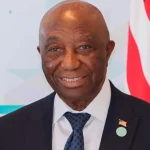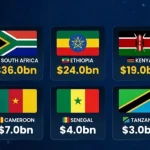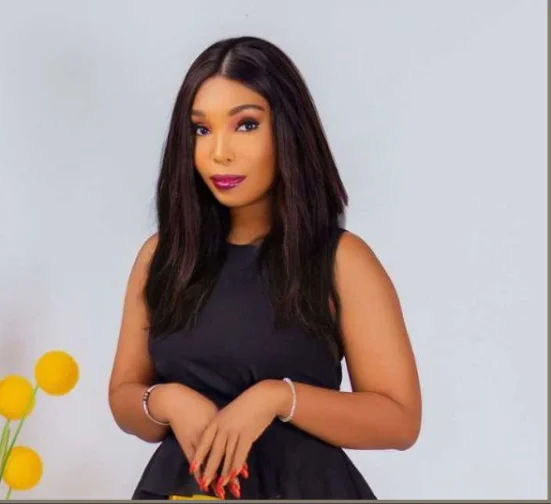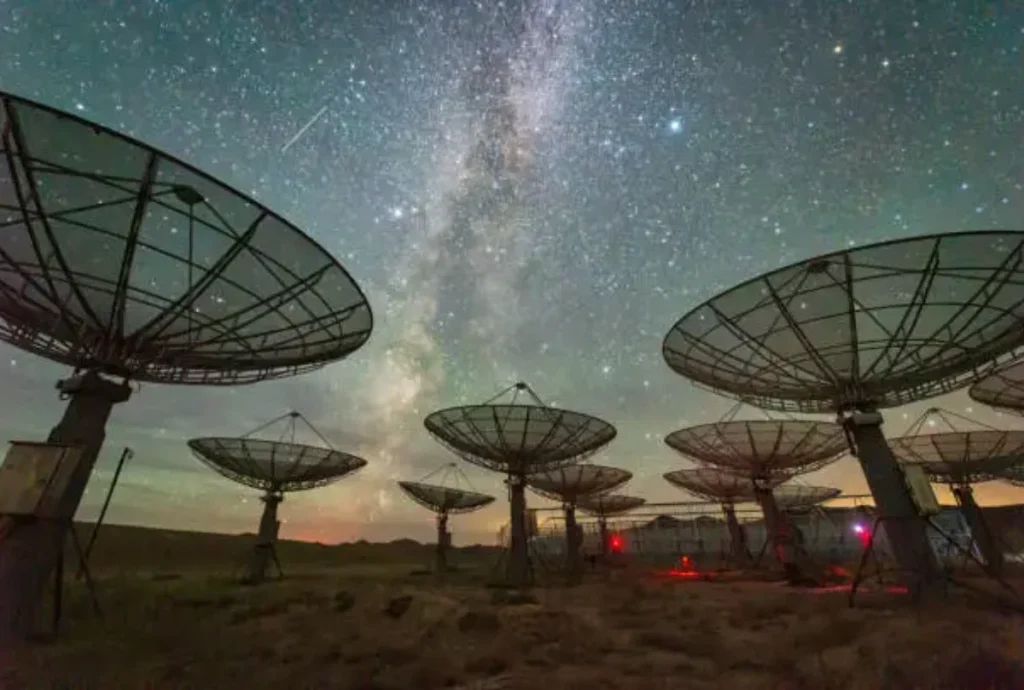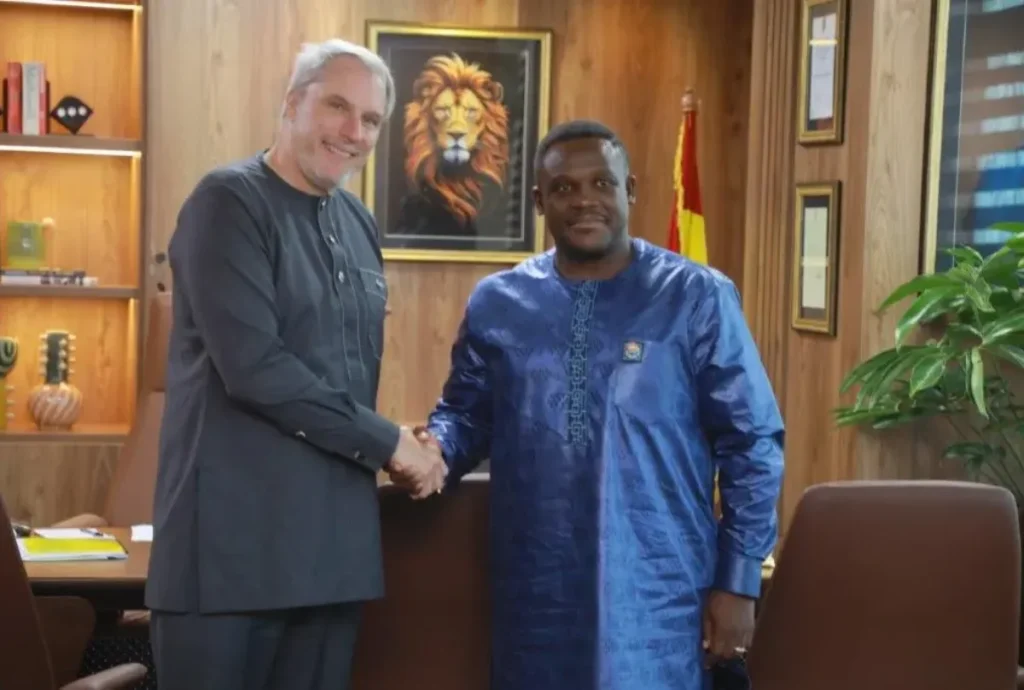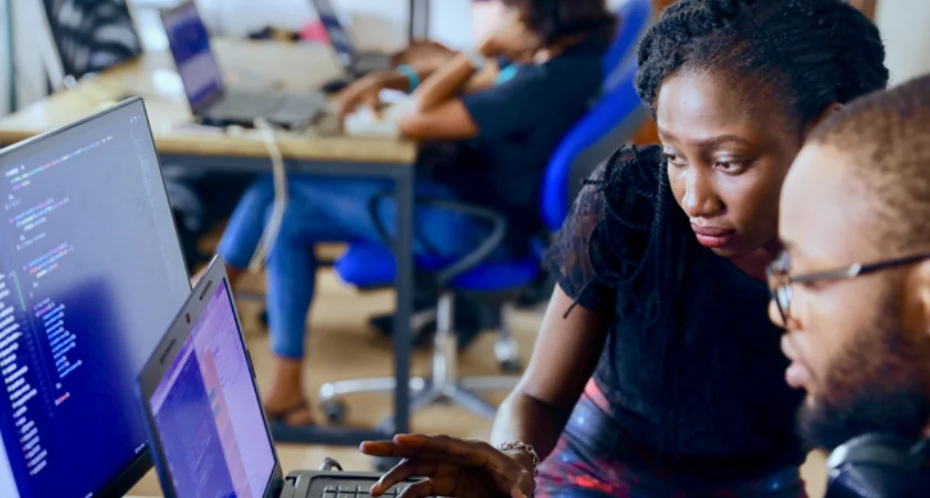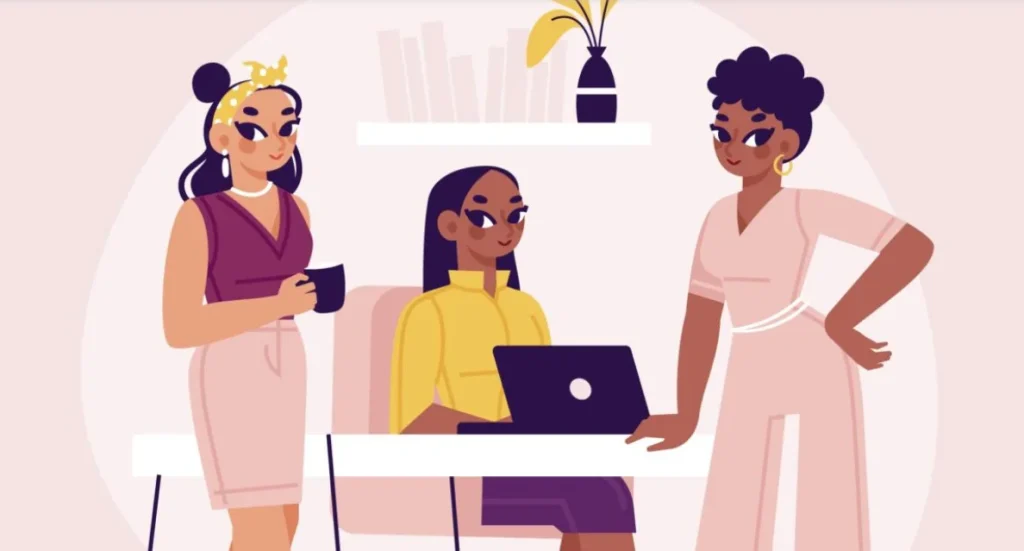Known in digital creative circles as The AI Queen, Precious Eboh Okiya is not just a tech founder; she is a force at the intersection of storytelling and artificial intelligence.
Through her edtech startup, Designpub Global Academy, she is pioneering a bold new movement: AI filmaking in Nigeria, a space few have ventured into and even fewer have mastered: harnessing artificial intelligence to democratise filmmaking, making it faster, cheaper, and more accessible.
Okiya’s love for stories began in her childhood, watching Nigerian classics like Tales by Moonlight, Super Story, and Binta and Friends. “The life lessons embedded in these stories stuck with me and inspired my commitment to telling meaningful stories that resonate,” she recalls.
That passion carried her through a six-year career in project management, but it was in 2022, when she founded Designpub, that her creative calling found its true outlet. The academy started with courses in creative writing and scriptwriting, but a pivotal moment came when Okiya decided to turn one of those scripts into a short film addressing cervical cancer awareness.
“Paying actors, renting cameras, securing locations – it was just too expensive for a self-funded project,” she says. The project stalled, leaving her frustrated but determined.
Then came AI, a game-changer that Okiya describes as “an answered prayer”. With tools like Sora, Kling AI, and Vidu, she could create films from the comfort of her home, slashing production costs and time by more than half. “AI gave me the creative freedom to tell impactful stories that challenge stereotypes and spark real conversations,” she says.
The result? Two critically acclaimed AI-generated short films: HER, which champions women’s financial independence, and HER WAR, a powerful narrative dismantling stereotypes about women in the military.
Both films earned recognition from platforms like the Zuma Film Festival, CCHub and The Entertainment Media Hubs, cementing Okiya’s reputation as a pioneer.
AI as a collaborator, not a disruptor
What does it mean to be an “AI filmmaker”? For Okiya, it’s about leveraging technology at every stage of the creative process, from ideation to execution, without losing the human touch. “It starts with story ideation,” she explains. “Sometimes I brainstorm with AI to explore themes or plot twists. Then, for scriptwriting, I use AI to refine dialogue or improve pacing; it’s like having a creative partner that never gets tired.”
AI also animates her characters, lip-syncs voiceovers, and handles complex editing tasks, allowing her to produce professional-grade films with minimal resources. “What used to take a full crew and lots of equipment, I can now do with my creativity, my laptop, and the right tools,” she says.
Far from replacing creativity, AI amplifies it, giving Okiya the freedom to tell stories on her terms.
“AI did not replace my creativity; it amplified it,” she says with conviction. “It gave me the freedom to tell stories that matter, on my terms.”
In Nigeria, where Nollywood thrives on traditional methods, physical cameras, live actors, and on-location shoots, Okiya’s approach has sparked both curiosity and scepticism.
“A lot of people were like, ‘Wait, how are you making films without a camera crew?’” she says with a laugh. Some fear AI could disrupt jobs in an industry that employs thousands, from actors to grips. But Okiya sees it differently: “AI is not here to replace creativity; it is here to empower it.” Her work has ignited conversations among young creatives, particularly those without access to big budgets. Once they see her films, scepticism often turns to awe. “They’re blown away,” she says, “and then they start asking, ‘How can I learn this too?’”
Accessibility, however, remains a challenge. Tools like Sora, Kling AI, and VEO 2, which Okiya uses for image generation and animation, are not always readily available in Nigeria due to subscription costs, regional restrictions, or the need for dollar-based payments.
“Platforms like VEO 2 just recently became available here, but the subscription fee, around ₦28,000, is a bit pricey for many,” she notes.
To bridge this gap, Okiya is doubling down on education through Designpub’s Cohort 4, set to launch soon. The programme offers training in AI storytelling, creative writing, and videography, with perks like paid subscriptions to AI platforms and data support for top students.
“I believe talent should never be held back by lack of access,” she says. “With the right guidance, even with limited resources, creatives in Nigeria can tell powerful stories using AI.”
Okiya’s latest project is her most ambitious yet: AI-powered documentary films for a digital museum, a groundbreaking initiative sponsored by the British Council and Re-Roll Station Labs. Set to debut at pop-up exhibitions in Abuja and London, the project showcases AI’s potential to preserve and share cultural narratives.
The broader debate about AI’s role in creativity: collaborator or disruptor?
Okiya navigates with clarity. “AI is a collaborator,” she insists. “It handles technical tasks, freeing us to focus on the art, the emotions, and the message.”
While AI can generate ideas or animate characters, it is the human filmmaker who infuses stories with cultural nuance and emotional depth. In visual effects, AI’s efficiency is unmatched, turning weeks of work into minutes, but it’s the filmmaker’s vision that makes those effects meaningful. “AI opens new doors for storytelling without taking away the human touch,” she says.
Artificial intelligence: The future of Nollywood is hybrid, scalable, global
Looking ahead, Okiya envisions a Nollywood transformed by AI, where storytellers can create bigger, bolder narratives without breaking the bank.
“In the next five years, I see fully AI-assisted films becoming common, with AI handling animation and effects while humans steer the narrative,” she predicts. Fully AI-generated films may take longer to gain traction in an industry rooted in cultural authenticity, but hybrid productions, blending AI with live action, are already on the horizon.
“Nollywood will leverage AI to tell more stories, reach wider audiences, and compete globally without losing its cultural soul,” she says.
Okiya’s journey as the AI Queen is more than a personal triumph; it is a blueprint for the future of African storytelling. By blending technology with passion, she is empowering a new generation of creatives to tell stories that educate, inspire, and drive change.
As Nollywood stands on the verge of an AI-driven renaissance, Precious Eboh Okiya is leading the charge, proving that with the right tools, a single storyteller can change the world, telling impactful stories without breaking the bank.


